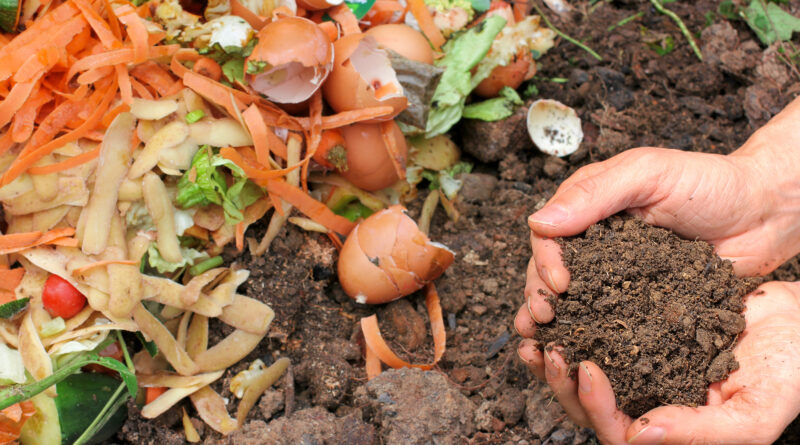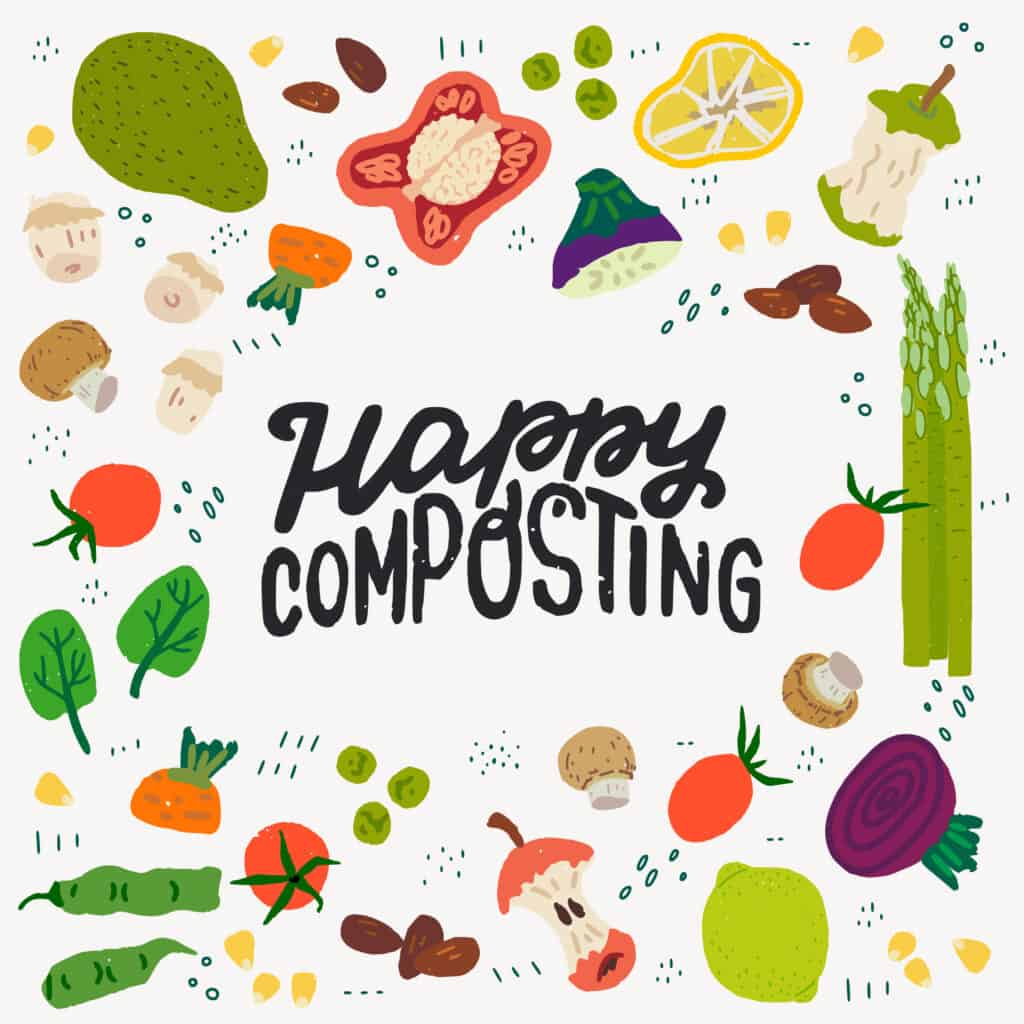
All About Composting: Videos & Resources
This page contains helpful resources for exploring the awesome benefits of composting, how it works, and the many ways to get started!
In the U.S., food scraps and food waste, together with yard trimmings, currently make up just over 30% of all landfilled material. Discarded wood, paper, and paperboard account for about another 20% of the total. All in all, this means that just over half of the material ending up in landfills comes from plant and animal sources.
This is not good news for our planet!
The fact that all of this organic waste takes up lots and lots of landfill space is just one part of this major problem. When organic materials such as fruit and vegetable scraps and dried leaves become buried in landfills without exposure to oxygen, they undergo anaerobic decomposition – a process that produces methane, a powerful greenhouse gas. In fact, municipal solid waste landfills are the 3rd biggest source of methane emissions from human-related activity in the United States!
And there is yet another big reason why food waste and yard trimmings don’t belong in the garbage. Trapped among layers of other waste in a landfill, all of the valuable nutrients within organic materials become disconnected from Earth’s natural cycles instead of being recycled back into the soil, where they are needed by living things to grow.
Composting keeps organics in the loop
What is composting?
Composting involves separating organic materials* from other waste items and allowing them to break down gradually so they can be recycled back into the natural environment. The nutrient-rich compost that is produced over time makes a great natural fertilizer for gardens, yards, and farms, enriching the soil and making it healthier for plants to grow. The use of compost also has many other benefits, such as helping to reduce erosion and improving water retention in the soil. Gardeners often fondly refer to compost as “black gold” for good reason!
*Common compostable organic materials include fruit and vegetable scraps, yard trimmings, and coffee grounds, as well as many non-recyclable paper and other plant-based products such as paper towels, paper coffee filters, food-soiled cardboard, and much more!
A simple and powerful way to reduce our impact – Every day
By making the conscious choice to keep organics out of the waste stream, we instantly shrink our environmental footprint in many important ways. We help reduce the amount of organic waste reaching landfills, which in turn reduces greenhouse gas emissions that contribute to climate change. We also ensure that valuable nutrients end up back in the soil where they belong… instead of going to waste. Composting is undoubtedly an all-around super Earth-friendly thing to do!
Curious about composting but not sure where to begin?
The great news is that composting doesn’t have to be complicated or time-consuming…. And there are all kinds of ways to get started!
Explore this page to learn more about various composting options, including:
- Home composting
- Curbside compost collection services
- Community composting
- Large-scale/municipal composting operations
Home Composting
If you are new to composting and would like to find out more about getting started at home, check out the short videos and links below for all kinds of helpful tips!
Composting for Beginners | Better Homes & Gardens (5:30 min)
Beginner’s Guide to Composting | Nelson City Council (3:12 min)
Explore More:
Composting 101 | Natural Resources Defense Council (NRDC)
Composting at Home | U.S. EPA
Home and School Composting Information | U.S. Composting Council
Compost Collection Services
Interested in composting but don’t have the time or space to compost at home? A curbside composting service may be a great option!
Now available in many areas, compost services will pick up food waste and other compostables from homes, businesses, and other locations on a regular schedule. The organics they collect are then transported to managed composting sites where they gradually decompose and become compost. Many of these services will also deliver finished compost back to their customers for use at home.
Use the helpful directories below to find out if a compost pickup service is available in your area:
CompostNow’s online directory includes curbside composting services throughout the U.S. and Canada. It offers a searchable map and listings by state/province.
Litterless Where to Compost directory lists compost collection services and other off-site composting options across the U.S., searchable by state.
Learn more about how compost pickup services work in this great video featuring Garbage to Garden, a curbside composting company in Maine and Massachusetts. (3:23 min)
Community Composting
In some areas, residents may have options for dropping off their food waste and yard trimmings locally for composting. This can include community gardens, local farms, or even nearby residents who need more organics for their own compost piles.
To find out if there are community composting or compost drop-off options in your area, check out the resources below:
Litterless Where to Compost directory lists a wide range of compost drop-off and collection options, searchable by state. (U.S. only)
ShareWaste is a free service that connects people who have food scraps and other organics to “donate” with local “hosts” who can use them. To learn more about this great program, visit the ShareWaste website and be sure to explore their searchable map to find registered drop-off locations worldwide. They also have a free mobile app!
The inspiring video below highlights a small urban farm in Brooklyn that transforms organic waste from the surrounding community into over 150 tons of compost by hand each year. (6:48min)
Large-scale Composting Programs
In a growing number of places around the U.S., governments have taken big steps to get their residents composting. Back in 1996, the city of San Francisco began the very first community-scale food composting program in the country. Since then, many other municipalities have followed in their footsteps. In 2020, Vermont became the first state in the U.S. to ban household yard trimmings and food scraps from the garbage!
To learn how composting works on a city-wide scale, check out this eye-opening video below featuring a facility run by Recology in San Francisco. (9:34min)
More Resources
Composting in America is an informative report examining the many benefits of composting and municipal composting trends in the U.S. (Published in 2019 by the Frontier Group & the U.S. Public Interest Research Group.)
More helpful composting resources for individuals, schools, businesses, and beyond:
Compost Research & Education Foundation
Learn more about International Compost Awareness Week, celebrated each year in May.

